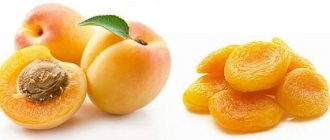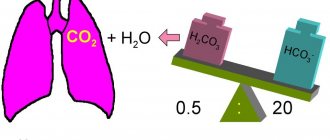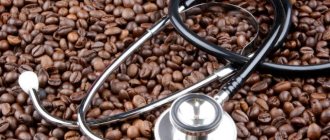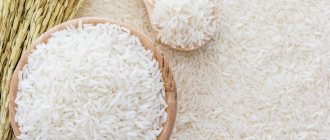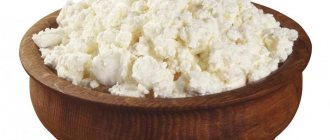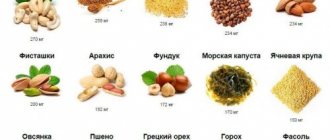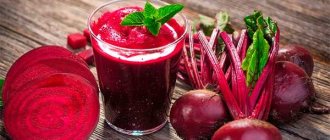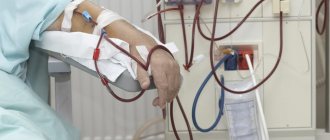| During Soviet times, hematogen was a dessert. And many modern children do not even know what it is or what it consists of. Hematogen was part of the diet of soldiers during World War II. It was prescribed to children who were treated in a hospital, and was also recommended to people of retirement age. |
- What is hematogen
- Hematogen: composition
- Action of hematogen
- The benefits of hematogen
- Harm of hematogen
- Hematogen during pregnancy
- How to use hematogen
- Contraindications for taking hematogen
- How to choose a hematogen
What is hematogen
Now hematogen looks a little different.
In its composition you can find various additives: natural and chemical. Today it is allowed to be sold not only in pharmacies, although previously this was a strict norm. Hematogen has retained its basic properties for decades. It is prescribed and recommended to stimulate hematopoietic processes. You cannot eat it by your own decision unless there are appropriate indications. It is also important to maintain a certain dose. In the instructions you can see and make sure that hematogen is a drug for hematopoietic processes. That is, it cannot be considered a candy or dessert that can be eaten whenever and as much as you want. In the pharmaceutical classification today it belongs to dietary supplements. Hematogen is similar in appearance to chocolate, but its taste and structure are different.
ROLE OF IRON IN THE HUMAN BODY
Iron is an essential component of many proteins and enzymes; its most important function is participation in respiration processes. The element is part of hemoglobin and ensures the transport of oxygen to tissues. On the way back, the red blood cells “carry” carbon dioxide to the lungs. If the body lacks iron, then over time the concentration of hemoglobin in the blood decreases, which leads to insufficient oxygen supply to the body’s tissues, and consequently, malfunctions in the functioning of internal organs.
Hematogen: composition
The basis of any hematogen is cattle blood, purified from microorganisms and defibrated. But often manufacturers use purified hemoglobin rather than blood. In order for the medicine to have a pleasant taste, its composition includes:
- sugar
- molasses
- sesame
- chocolate
- nuts
- honey
- candied fruit
- coconut flakes
- condensed milk
- vanilla, etc.
The word “blood” will not be written in the composition; you will see “food albumin” there. This phrase hides blood protein.
Hematogen contains microelements, macroelements and nutrients that have a positive effect on hematopoietic and other processes in the body. As for the carbohydrate composition of hematogen, sugars can be found in it:
- dextrin
- maltose
- sucrose
- glucose (most often)
As for fats, hematogen also contains them. These are animal fats and vitamins that dissolve in fat. Hematogen also contains iron, which the body needs for iron deficiency anemia. As for vitamins, you will mainly find vitamins A and C in this medicinal supplement. But other options are also possible. Then the vitamin will be indicated on the package. Iron is not the only mineral that hematogen contains. There are sodium, potassium, chlorine and calcium. They are present there in small quantities, therefore they cannot fully cover the body’s daily needs. Everything else in hematogen is auxiliary substances, which for the most part are designed to improve the taste of the product.
Hematogen - “giving birth to blood”
Hematogen is a multivitamin complex consisting of many different vitamins that are naturally found in food and other natural sources.
Hematogen translated from Greek means “giving birth to blood.” Hematogen is a drug consisting of a large amount of iron. It quickly binds to protein components and completely dissolves in the gastrointestinal tract. It also allows the formation of red blood cells.
It consists of processed defibrinated cattle blood of dry form with the addition of various components that improve its taste (coconut flakes, ascorbic acid, sugar, chocolate, condensed milk, honey, nuts). During the special processing of cattle blood, the beneficial properties contained in it remain unchanged, so hematogen is made in the form of small, pleasant-tasting tiles.
Composition of hematogen
Hematogen contains a complex of nutrients (carbohydrates, fats, proteins), but the main ingredient is still iron, without which the formation of erythrocytes (red blood cells) becomes simply impossible.
Iron is commonly found in foods, and is especially abundant in red meat. In the body, iron is part of hemoglobin and myoglobin. Hemoglobin carries oxygen through the blood to organs and tissues, while myoglobin helps muscle cells store oxygen.
Iron in hematogen is contained in the form of hemoglobin, which is quickly absorbed by the body. In addition, it contains a lot of vitamin A and a large number of amino acids.
Who needs hematogen and when?
Hematogen is needed:
- patients with anemia and anemia;
- to replenish the body with iron and multivitamins;
- during pregnancy (not in all cases);
- in the treatment of blood diseases;
- to improve nutrition (especially for children);
- for disorders of the digestive system;
- in case of poisoning;
- for preventive purposes in case of vitamin deficiency and poor absorption of food.
The benefits of hematogen
The benefit of hematogen is that it improves vision, digestion, metabolic processes, and strengthens the mucous membrane of organs. It has an excellent effect on the respiratory system, increasing the stability of the bronchial membranes. It is useful in childhood and adolescence, especially for children suffering from prolonged lack of appetite. It should also be taken by adults with a lack of vitamins in the body.
Hematogen is used for the prevention and treatment of:
- low blood hemoglobin level;
- visual impairment;
- growth retardation;
- balanced nutritious nutrition;
- influenza and HRVI;
- various infectious diseases;
- chronic diseases.
Good benefits in addition to taking hematogen as the main treatment for diseases of the gastrointestinal tract, gastritis and stomach ulcers, and vision organs.
Harm of hematogen
As the saying goes, “A lot of good things are also bad.” Although the harm of hematogen occurs infrequently, it is sometimes possible. First of all, this can happen due to an overdose or uncontrolled use, incl. and with incompatible drugs. For more information about the harm from taking hematogen and how to avoid it, see below.
How to take Hematogen correctly
The benefits of hematogen, as well as the harm, greatly depend on the correct dosage. Before starting treatment with hematogen, in order to avoid side effects, it is recommended to consult a doctor (in some cases it is not effective for certain types of anemia that are not associated with iron deficiency). Since hematogen contains a lot of carbohydrates that are easily digestible, it is prohibited for people prone to obesity and diabetes mellitus. Pregnant women should take Hematogen with caution, because it can harm the fetus during development. Also, during pregnancy you should not use hematogen due to the high likelihood of a sharp increase in body weight; it also contributes to blood thickening, leading to the formation of blood clots. It is harmful to use hematogen in the treatment of metabolic disorders of the body, because it is a source of substances similar in composition to human blood. Hematogen is produced based on a product of dry plasma or blood serum - black albumin. The uniqueness of albumin lies in the easy digestibility of iron and protein, which does not cause stomach irritation. If nausea occurs, you should immediately stop using hematogen, because These are the first signs of side effects that cause symptoms of fermentation in the stomach.
Hematogen causes almost no side effects, having in most cases a mild effect on the body. It is advisable to take it not only for treatment, but also as a preventive measure, especially for children during the period of active growth.
The recommended daily dose of hematogen for children over 6 years of age is 30 g, for adults – 50 g.
What is important to know about hematogen?
Never take more than the recommended dose of Hematogen.
Avoid any other multivitamin products for 2 hours before or after taking Hematogen.
Taking these vitamin supplements at the same time may result in a vitamin overdose or more serious side effects.
Call your doctor right away if you think you have taken too much of this medicine.
Overdosing on vitamins A, D, E, K can cause serious or life-threatening side effects.
Symptoms of an overdose of these vitamins, and that is, of the hematogen itself, may include:
- severe stomach pain;
- vomiting;
- bloody diarrhea;
- cough with blood;
- constipation;
- loss of appetite;
- hair loss;
- peeling of the skin;
- sensations of warmth and tingling in the body;
- changes in the menstrual cycle;
- weight loss;
- severe headache;
- muscle and joint pain;
- backache;
- blood in urine and stool;
- black and tarry stools;
- pale skin;
- light bleeding;
- weakness;
- shallow breathing;
- weak and rapid pulse;
- pale skin, blue lips and seizures.
Hematogen should not be taken with milk, other dairy products, dietary supplements, calcium, or antacids containing calcium. Calcium may make it difficult for the body to absorb certain Hematogen ingredients.
What should you know before using Hematogen?
Hematogen and some vitamins can cause serious or life-threatening side effects when taken in large doses. Therefore, you should not take more than two tablets per day. If you have any medical conditions, first of all, consult your doctor before taking. Do not take Hematogen uncontrolled if you are pregnant or if you are planning to become pregnant in the near future. Some vitamins and minerals can harm an unborn baby if taken in large doses. Multivitamins can pass into breast milk and harm the baby. Do not use Hematogen without a doctor's prescription if you are breastfeeding.
How should I take Hematogen?
Do not consume too much hematogen, because... it can cause side effects such as stained teeth, increased urination, stomach bleeding, uneven heartbeat, confusion, and muscle weakness.
Always read what the drug contains.
Take Hematogen with a full glass of water.
It is good to take Hematogen with food if it does not harm the stomach.
During treatment, it is important to take Hematogen regularly to get maximum benefit.
Hematogen should be stored at room temperature away from moisture and heat.
What should I avoid while taking Hematogen?
While taking Hematogen to prevent self-harm, you should:
- avoid taking any other multivitamin preparations within 2 hours before or after taking Hematogen;
- do not take hematogen in combination with other vitamins;
- Avoid regular use of salt substitutes in the diet when taking multivitamins containing potassium;
- take Hematogen with caution if you are on a low-salt diet;
- Avoid taking antibiotics within 2 hours before or after taking Hematogen. This is especially important when taking antibiotics such as ciprofloxacin, doxycycline, levofloxacin, minocycline, norfloxacin, ofloxacin, tetracycline;
- Avoid taking multivitamins 1 hour before or 2 hours after eating fish, meat, liver, whole grain products, cereals, because Some foods can make it difficult for the body to absorb iron;
- Do not take Hematogen with milk, other dairy products, calcium supplements, or antacids containing calcium. Calcium can make it difficult for your body to absorb certain ingredients and multivitamins.
Side effects of using hematogen
The harm of hematogen can affect both very quickly and be detected a few hours after ingestion. Seek emergency medical help immediately if you experience any of the signs of the side effects listed below:
- allergic reactions on the skin;
- hives;
- labored breathing;
- swelling of the face, lips, tongue, or throat;
- bright red blood in the stool;
- chest or throat pain when swallowing.
- Less serious side effects may include:
- constipation;
- diarrhea;
- nausea, vomiting, heartburn;
- stomach pain or upset stomach;
- black or dark-colored stools or urine;
- temporary staining of teeth;
- severe headache;
- unusual or unpleasant taste in the mouth.
This is not a complete list of side effects that may occur when taking Hematogen.
What drugs are not compatible with taking Hematogen?
Vitamin and mineral supplements may interact differently with some medications. Therefore, before taking Hematogen, tell your doctor about the medications you are taking. You should be especially careful if you are taking diuretics (diuretics), heart or blood pressure medications, tretinoin (vesanoid), isotretinoin, penicillamine, trimethoprim, sulfamethoxazole, nonsteroidal anti-inflammatory drugs such as ibuprofen, naproxen, diclofenac, indomethacin, ketoprofen, and etc. The harm caused by the combined use of hematogen and another drug may manifest itself in the form of the symptoms listed above, but in some cases it may be different.
This is not a complete list of drugs that are incompatible with taking Hematogen. Tell your doctor about all prescription and over-the-counter drugs you use, including all vitamins, minerals, herbal products, and drugs prescribed by other doctors, to prevent possible harm from taking Hematogen with another drug.
Where can I get more information about Hematogen?
You can get more detailed information about hematogen and its properties from your pharmacist.
RESULT
Hematogen is a drug that is produced from the blood of cattle. It tastes and looks like sweetness due to the addition of food ingredients.
Now let’s very briefly sum up the benefits and harms of hematogen.
Hematogen contains iron, valuable amino acids for the body, vitamin A, as well as fats and carbohydrates.
Benefits of hematogen: increases hemoglobin, improves vision, digestion, metabolic processes, strengthens the mucous membrane of organs, has a positive effect on the respiratory system, is useful for children suffering from lack of appetite, adults with vitamin deficiency.
When hematogen is used: for diseases of anemia and anemia, for inflammation of the body with iron and multivitamins, during pregnancy (not always), for diseases of the gastrointestinal tract, gastritis and stomach ulcers, to improve nutrition, to prevent vitamin deficiency and poor absorption of food, and also a doctor may prescribe it in many other cases. Although now doctors more often prescribe a complex of multivitamins, rather than hematogen, for general strengthening of the body during illness. The harm of hematogen primarily lies in overdose or uncontrolled use. Also, you should not use it during breastfeeding without a doctor’s prescription and when treating metabolic disorders of the body. Hematogen can be harmful for people with high blood hemoglobin or hypovitaminosis (exceeding the norm of vitamins), thrombosis. It is important to consult a doctor if you take other medications (multivitamins, mineral supplements, antibiotics, etc.) while taking Hematogen, in order to avoid side effects.
Healthy lifestyle office
Action of hematogen
It is not for nothing that this drug is prescribed if tests reveal very low hemoglobin. Hematogen is a source of iron. And it compensates for low hemoglobin levels. Iron is absorbed in the intestines and from there enters the blood. There it takes part in the formation of the hemoglobin protein, which is the essence of the hematopoietic process.
Iron increases the amount of ferritin protein, which binds excess iron so that it does not poison the human body. This is how “depots” are created, that is, iron reserves.
How to find out if you have anemia
Typically, in the initial stages, iron deficiency states do not appear externally. But minor symptoms may appear, which are usually ignored and lead to further development of the disease.
“With a lack of iron, the formation of the protein that carries oxygen to cells—hemoglobin—is disrupted. When his performance decreases slightly, fatigue increases, shortness of breath, dizziness and fainting occur with minor exertion,” says the hematologist.
You can find out about a lack of iron in the body only through a blood test. It makes sense to take it if all the symptoms appear for no apparent reason.
The list of tests must include a test for hemoglobin level, hematocrit, mean erythrocyte volume (MCV) and mean erythrocyte hemoglobin content (MCH).
Natalya Polenova notes that a single general blood test assessing hemoglobin levels is often not enough, especially for women or people with chronic heart failure.
Only a doctor can, after studying the tests, identify the cause of the deficiency and prescribe treatment.
The benefits of hematogen
A doctor can prescribe hematogen to a child, teenager or adult not only when a disease is detected, but also in a transient state (the state before the disease, when warning signs of a particular pathology appear). As already noted, hematogen is used for disturbances in the process of creating blood in the body. It has a fairly high nutritional value.
Conditions and diseases for which hematogen is useful:
- general exhaustion of the body (under the influence of poor ecology, stress, physical or prolonged mental stress)
- Iron-deficiency anemia
- gastrointestinal ulcers, in which bleeding is one of the symptoms
- lack of vitamins
- visual impairment due to lack of vitamin A in the body
- The child's growth is too slow and there is insufficient weight gain
- suffered serious illnesses
Harm of hematogen
Some people really like hematogen and consume it as a dessert without a doctor’s prescription. But remember that you should not eat this medicine like regular food. The most obvious consequence: excess (excess accumulation) of iron. In such cases, free radicals are produced, which can damage cell walls or even contribute to their destruction.
If the amount of iron in the body is higher than normal, cholesterol begins to actively deposit in the vessels. And this, as we have already written, is a factor in the development of such a disease as atherosclerosis. A large amount of hematogen causes fermentation processes in the intestines. This can cause symptoms such as nausea and even vomiting, dizziness, and loose stools.
Hematogen during pregnancy
Pregnant women have a high need for iron. This is important for the placenta to form normally, the fetus to develop properly, and also for the normal state of the expectant mother’s body. The source of iron should be external, not a ferritin depot. Most iron is lost during childbirth, when a woman bleeds to death. Iron is also “sucked out” by the baby during breastfeeding.
In pregnant women, the volume of freely circulating blood increases by almost 1.5 times; accordingly, more iron is needed than before conception. In the second and third trimester (from the 4th to the 9th month of gestation) you need even more iron than in the first three months. During this period, there is a very high risk of developing iron deficiency anemia. For prevention, you need to ensure that the pregnant woman consumes 27 mg of iron per day. To do this you need to eat hematogen. But it cannot be the only source of the required element. Good nutrition is also important. Meat, fish, liver, chicken eggs, cereals and green vegetables cannot be excluded from a pregnant woman’s diet. Sometimes you don’t want them, but remember that both you and your unborn child need them.
But regarding the use of this dietary supplement, you should definitely consult with your doctor, who will determine the optimal individual dose. Even during pregnancy, you cannot eat hematogen uncontrollably, because an excess amount of it will negatively affect the baby’s body. Excessive intake of hematogen causes blood thickening, which can lead to thrombophlebitis.
PRODUCTS FOR DAILY NUTRITION: DIET IN PRACTICE
The doctor, selecting foods that are useful for low hemoglobin, adjusts the diet individually. Compliance with the optimal amount of consumption minimizes the risk of possible allergies and imbalances in microelements entering the body.
- Beef can replenish one fifth of the body's daily requirement for iron. In second place is the liver .
- An excellent remedy is red caviar. But keep in mind that it is high in calories.
- The diet includes a variety of plant foods : beets, carrots, rowan berries, pomegranates, nuts, carrots, raspberries, blackberries, strawberries, blueberries, black currants, grapes, peaches, bananas, dates, garlic. Citrus fruits are allowed only to those people who do not have allergies.
- An affordable remedy included in the diet to normalize hemoglobin levels is rosehip decoction . Drink it 250 ml per day. To prepare the decoction overnight, pour 20–30 g of berries with boiling water.
- Among nuts, walnuts contain the most iron. Every day you can eat 100 g of nuts mixed with honey.
- honey itself is enough every day. This product not only provides the body with iron, but also has a general strengthening effect.
- Red grape wine is drunk little by little.
- Legumes and grains are rich in iron, but at the same time they contain substances that impair the absorption of the element. To neutralize them, the grains need to be soaked, ground or sprouted.
- Dried fruits are a very tasty remedy. Mix raisins, dried apricots, prunes and walnuts in equal proportions. The mixture is passed through a meat grinder and coated with honey. Eat 120 g daily. The presence of copper, pyridoxine hydrochloride, ascorbic and folic acid in the products promotes the absorption of iron to maintain hemoglobin balance in the blood. Therefore, diets often include tomato, orange and grapefruit juices, parsley and other greens.
Another aspect of dietary adjustment is to limit the consumption of foods that impair iron absorption - coffee, tea, cheese, pasta, cereals (the exceptions are buckwheat and oatmeal).
How to use hematogen
Hematogen today can be purchased as bars, tiles or chewing strips. The dosage can be different: from 20 to 50 grams. Children from 3 to 6 years old can take 5 grams 3 times a day. Children from 6 to 12 years old are prescribed two doses of 10 grams. Children from 12 to 18 years old can take no more than 10 grams of hematogen 3 times a day.
Adults can take 5-15 grams 2-3 times a day. Pregnant women are given a maximum of 50 grams per day (various numbers of doses). People of any age can take Hematogen for 14 to 21 days (course). If you are pregnant, ask your doctor about the course of taking this dietary supplement; there may be individual differences. Hematogen must be taken between meals to ensure complete absorption of nutrients.
Hematogen can be washed down with clean water. But you don’t need to drink it with milk or other dairy products, as this will worsen the absorption process. You cannot take vitamins in courses together with hematogen. If you need to take other medications in parallel with the course of Hematogen, consult your doctor. This is a serious question, although you may mistakenly think otherwise.
NORMAL HEMOGLOBIN IN BLOOD
| Age | Norm, g/l | Mild anemia | Moderate anemia | Severe anemia |
| 1-3 days | 145-225 | 90-145 | 70-90 | Less than 70 |
| 7 days | 130-215 | 90-130 | 70-90 | Less than 70 |
| 15 days | 125-204 | 90-130 | 70-90 | Less than 70 |
| 30 days | 120-180 | 90-120 | 70-90 | Less than 70 |
| 2 months | 110-141 | 90-110 | 70-90 | Less than 70 |
| 3-6 months | 110-135 | 90-110 | 70-90 | Less than 70 |
| 6-12 months | 110-140 | 100-110 | 70-100 | Less than 70 |
| 1-2 years | 110-145 | 100-110 | 70-100 | Less than 70 |
| 3-6 years | 110-150 | 100-110 | 70-100 | Less than 70 |
| 7-12 years | 115-151 | 110-115 | 80-109 | Less than 80 |
| 13-15 years old | 120-155 | 110-120 | 80-110 | Less than 80 |
| 16-18 years old | 120-160 | 110-120 | 80-110 | Less than 80 |
| Men over 18 years old | 130-160 | 100-130 | 75-100 | Less than 75 |
| Women over 18 years old | 120-150 | 100-120 | 75-100 | Less than 75 |
| Pregnant women | 110-155 | 100-110 | 75-100 | Less than 75 |
Determination of hemoglobin level is performed during a general blood test in a laboratory setting. In healthy men it should not fall below 130 g/l, in women – 120 g/l. If a decrease is detected, the doctor decides how to increase hemoglobin in the blood. For this, iron supplements are selected and nutrition is adjusted.
Contraindications for taking hematogen
The main conditions and diseases in which it is better to avoid using hematogen:
- obesity (BMI over 30)
- diabetes
- age less than 3 years
- thrombophlebitis
- varicose veins
- metabolic disorders
- anemia (not iron deficiency)
- individual sensitivity to hematogen components, due to which there may be allergic reactions, up to very dangerous Quincke's edema
Hematogen, like all drugs, has its side effects. They mainly concern the gastrointestinal tract. This dietary supplement can irritate the mucous membrane of the stomach or intestines and activate the vagus nerve. Therefore, an unpleasant feeling in the abdomen, nausea and vomiting may appear.
How to choose a hematogen
Under the name “Hematogen” you can find completely different products on the market (in pharmacies or other stores). Some “hematogens” do not contain those substances that should be present to activate the process of hematopoiesis.
Check the composition of the dietary supplement. In the first place there must be “food albumin”. It can be hidden under the names “dried bovine blood” or “black food albumin.” It should be 4-5% of the total weight of the medicinal bar. Try to choose those dietary supplements that contain a minimum of aromatic and flavor additives. These can be natural supplements, they will not cause harm.
Let us once again mention the main thing: hematogen is not a healthy substitute for desserts and sweets. It should not be taken uncontrolled. Choose only high-quality products from pharmacies and take as prescribed by your doctor.
HOW TO ADD TASTE TO YOUR DIET
Often there is not enough iron in food, especially for vegetarians. Adjustment of the diet aimed at the synthesis of hemoglobin and red blood cells - the formed elements of blood - is enhanced by taking special medications. Iron-rich hematogen lozenges can be used as a tasty aid, as well as additional prevention. “FERROGEMATOGEN®-PHARMSTANDARD” has been developed for adults, and “FERROGEMATOGEN® CHILDREN” has been developed for children of different ages.
The drugs belong to dietary supplements and serve as additional sources of iron. They contain black food albumin, proteins, iron, copper and vitamins (pyridoxine hydrochloride, ascorbic and folic acid) in optimal proportions.
Adults and children over 11 years of age can take FERROHEMATOGEN®-PHARMSTANDARD 50 g per day. Children 3–7 years old are given 30 g of FERROHEMATOGEN® CHILDREN, and 7–11 year old children – 40 g. Duration of administration is 1–2 months.
Hematogen is contraindicated in case of individual intolerance and diabetes mellitus. Before use, consult a doctor.
